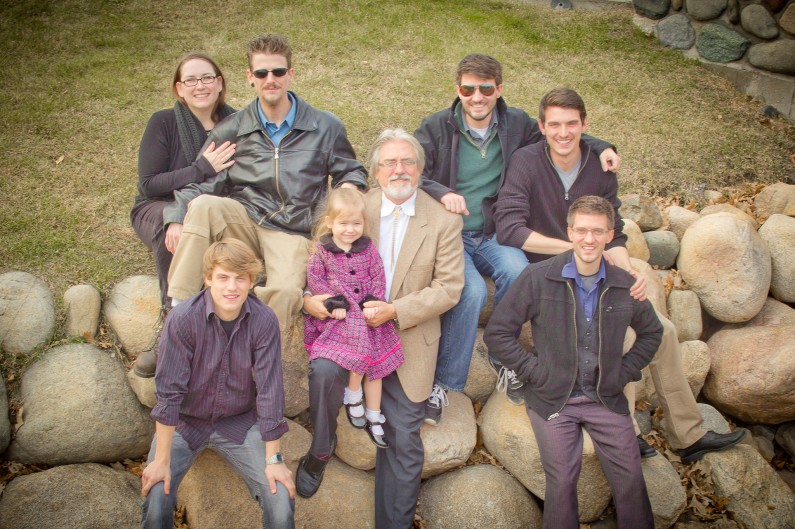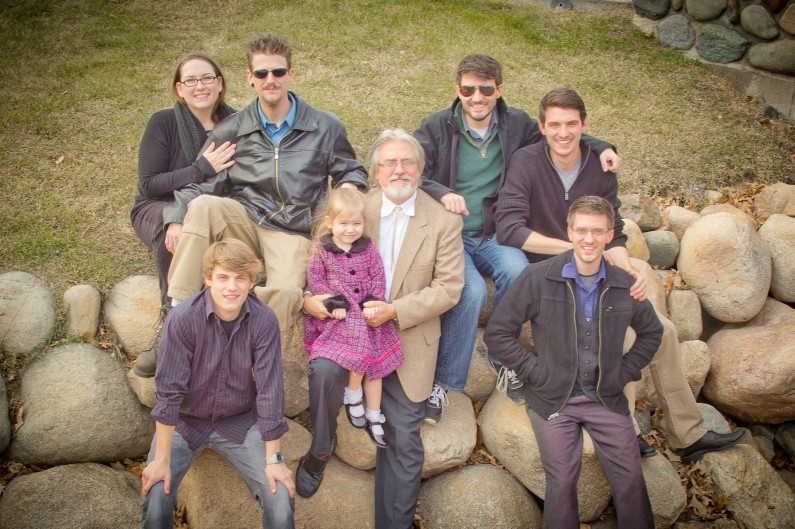

There are many alternatives to the traditional nuclear family. I myself think it is quite rare to come across the traditional nuclear family across generations. There are single-parent families run by a single parent who cares for one or more children with or without the assistance of the biological parent, the bi-nuclear family, usually consisting of two separate households where the former spouses continue to relate and interact with each other while separately raising a child or the children they share, and families brought together by remarriage, in which one or both spouses have been married before.
Having grown up in a traditional nuclear family composed of a mother, father, and older sibling, it was rather ironic for me to experience marriage, divorce, and remarriage, and, as an individual embody the characteristics of a “serial monogamist”. At times, it is quite painful for me to constantly hear of the harsh statistics of poverty, abuse, alcoholism, and other negative stereotypes within single- parent households, because I am fortunate enough to not fit into any one of those categories. I believe this is attributed to the support I have received from my own immediate family, the amicable relationship I have with the non-custodial parent, the values I have instilled within my own children, and my own personal belief that “family” can be defined in many ways.
The existence of the nuclear family is gradually diminishing over time. But the term itself is rather simplistic, when most families are in fact, quite complex. There are many marriages that remain intact that lack happiness, stability, and even fidelity. There are blended families that may not interact with each other on a daily basis, but exhibit characteristics of a “family” on special occasions or holidays. There are former spouses who are both remarried, who may be the very best of friends and somehow manage to function as successful co-parents. Families are much too complex and diverse to be defined into a single category.
For several years, I raised my eldest daughter, completely on my own. Due to the absence of her biological father, she was the center of my world. Growing up as a “parent” I learned that there were many disadvantages as well as advantages to not having him in our lives. I had to assume the role of father at times by being more protective, being the sole breadwinner, and withholding the fear and anxiety I had as a single parent. I had to be both authoritative as well as compassionate and nurturing. At the same time, I had to show that it was not unusual or extraordinary to be raised by a single parent, and point out that families who remain intact have their own set of struggles and obstacles that they must be overcome. I recall apologizing to my daughter when there was a father-daughter dance at school, and there was no father to accompany her, but to compensate for his absence I not only stay involved in school and extracurricular activities, but lavished her with gifts, and memorable birthday celebrations. I believe I gave her twice the amount of love any parent who have given a single child because I felt I owed it to her. Now, at nearly 18, she is quite confident, brilliant, and bound for one of the best schools in southern California. When she speaks of the absence of her father, it is no longer a story based on tragedy or loss, but indifference and acceptance.
Is the nuclear family truly ideal? I myself grew up in a traditional nuclear family and experienced my own challenges growing up. My parents did not always see eye-to-eye and they did not hesitate to express their disagreements in front of me and my siblings. There was no passion, shared interests, or even happiness. I witnessed tolerance, martyrdom, and tension, but what I gained was stability, comfort, and the combination of a warm, and loving mother and the discipline of a stern father.
I think the family unit is less important than the amount of love that generates through these different types of families. Conflict is inevitable, but those of us who are lucky enough to learn from our mistakes, put aside differences, and show forgiveness and acceptance of things that cannot be changed are better off. My former husband and I somehow managed to raise two daughters separately, and know exactly what we both must do to maintain peace. It is an unspoken understanding that we both have cultivated over the years. Growing up, I had wondered why my own parents remained together, and I came to realize that for them, divorce was never an option. We must all simply make the best out of the choices we make.
Blog By Ave Sanchez
Image courtesy of Artfulone – Flickr License


